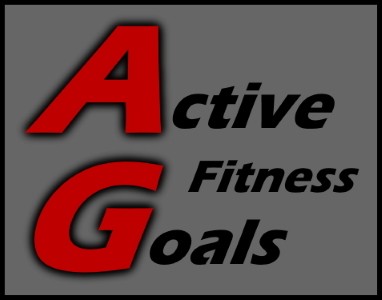The battle of which diet is the best for fat loss has been going on since the dawn of dieting. Everyone has an opinion and none of them are the same. Each diet advocate coming up with plenty of great arguments and loads of great looking transformation photos to provide as evidence. It’s a confusing decision to make. So how do you go about choosing your best fat loss diet that fits with your personal preferences?
What do all fat loss diets have in common?
Every single diet on the planet that has successfully helped someone lose weight has one important thing in common – they reduce the number of calories you consume! It doesn’t matter whether this is through periods of not eating, allocating points to foods, replacing meals with coffee, shakes or bars, eliminating carbs, eliminating fat etc. The end goal is always the same = less calories.

Success is personal
So why is it that some diets seem successful for a group of people and really not successful for others? One word – adherence. When it really comes down to it, successful diets are the ones that people really honestly stick to. Unsuccessful diets are ones where, despite their best efforts, people struggle to follow them and most likely cheat a bit more than they would like to admit.
This is why it’s so important to make sure that you are following a fat loss diet that is best for you and your personal preferences. There is no point in you trying to follow an intermittent fasting diet in the mornings if you are the sort of person that wakes up starving and will spend all morning light-headed and hangry.
Start off by having a think about a few things about you:
- What foods can you not live without?
- Are you more drawn to carbs or fats?
- When do you eat the majority of your food?
- Could you go periods of time without food?
- How adventurous are you in the kitchen?
- Can you eat the same things over and over or do you need variety?
I have had many clients experience great success using a variety of fat loss diets. I like to ask them questions around their preferences and then make some suggestions based on their answers. Once we find a method that seems to sit well with their personal preferences and they feel will be achievable and sustainable – that’s the one we go with!

Diet ideas
Here are some ideas of fat loss diets that in my experience have the most likelihood of success. As long as you pick one best one for you and your lifestyle. You also need to pick the one that you feel you are most likely going to be able to stick to long enough to achieve your fat loss goal.
Intermittent fasting
The idea here is that you simply do not consume any calories during a fasting window. This is most commonly split into 16 hours fasting (including sleeping) and 8 hours of eating. When you have your eating window doesn’t really matter. However, I tend to find that the majority of people have a preference for fasting in the morning. Especially if you are a coffee drinker, as drinking black coffee (no sugar) can help keep hunger at bay.
It works because it’s hard to physically eat too many calories within just an 8 hour window. It also avoids any snacking outside of the food window. So eliminates that late night bag of crisps / chocolate in front of the TV.
Who’s this best for? – You need to be able to go long periods of time without food. If you suffer with low blood sugar or experience mood swings when you haven’t eaten for a while, this isn’t for you. I find this works well for people that aren’t that fussed on breakfast anyway. Coffee drinkers do tend to have a bit of an advantage on this one.
5:2 diet
On this diet, you eat normally (healthily) for 5 days a week and then spend 2 days a week on really low calories (500 calories is typical). It doesn’t matter which 2 days you choose to do the low calorie days. They don’t need to be sequential either. In fact, it’s probably easier to stick to this diet if they aren’t. The calorie reduction in this diet comes entirely from the two days where you eat less as you could be reducing your overall weekly intake by 2,000-4,000 calories.
Who’s this best for? – You need to be able to function ok with really low calories for a day. So, this can’t be anyone that struggles with low blood sugar or who is susceptible to poor mood due to lack of food. It’s good for someone who can’t cope with healthy eating every day but can cope with sacrificing two days a week to eat more normally on the other 5. Likely going to be someone who isn’t fixated on routine too and who’s schedule allows two days a week where temptation isn’t going to be an issue.
Low carb
As the name suggests, this diet is one where carbohydrates are greatly reduced. Both sugars and starchy carbs. So, no potatoes, pasta, chocolate etc. By avoiding carbs, you are essentially getting your energy from dietary fats instead. A couple of reasons this diet works. Firstly, by reducing a whole food group, you are automatically eliminating some choice and temptation. A lot of unhealthy snacks contain carbohydrates. The really high calorie snacks tend to be a blend of carbs and fats. The second reason is that protein and fats both digest slower than carbs. This allows you to feel fuller for longer.
The extreme version of this diet is called the Keto diet.
Who’s this best for? – Most people tend to have a natural inclination towards fats or carbs for energy. You need to have a think about your preference. If you are the sort of person that can’t live without a slice of toast in the morning, eats all your pasta but is happy to leave the Bolognese (probably already finished the garlic bread) and always has a pack of sweets in their office drawer – this one probably isn’t for you.
Low fat
With this one, you are going to reduce the amount of fat you consume to a minimal amount. Eliminating things like butter, mayo, oil, cream, fatty meats etc. Fats contain the highest number of calories per gram – 9 calories! So, by reducing / eliminating this food group you are going to automatically eliminate many very high calorie foods. Also, many processed and fast foods are going to be off the menu.
Who’s this best for? – As above, most people tend to have a natural inclination towards either fats or carbs. You need to have a think about which foods you really could not live without. If these tend to be foods that tend to contain more fat then this diet may not be for you. If the thought of low fat alternatives makes you feel gloomy – also probably not for you. However, if you’re not too bothered about butter on your toast, prefer ketchup to mayo and don’t even like avocados – give it a go.
Paleo diet
This diet has one simple rule: ‘What could a caveman eat?’. It’s focussed on consuming only whole foods and meats. Therefore, eliminating high calorie processed meals. Eating lots of whole foods, will allow you to fill your stomach with less calories. These will also digest slower – you’ll feel fuller for longer and snack less in between meals.
Who’s this best for? – You’ll know yourself if you just cannot live without some processed foods. Bread might be a big stumbling block for some people. No more pasta. Take-aways and fast food are completely off the cards. But if you aren’t too worried about these things and you like good whole foods then this one could be for you. Meat, veg and potatoes anyone?
Meal replacement
As you’ve most likely worked out, this one involves replacing one (maybe two) of your meals with a meal replacement product. These typically come in the form of a bar or shake. These would only be a couple hundred calories and therefore a lot lower than a meal would have been.
Who’s this best for? – This one is good for people that don’t have a lot of time to prepare their food. That like the convenience and routine of simply swapping a meal for something else. Not so good for people that get hungry quickly or suffer with low blood sugar.
Watch out for these!
Does a diet sound unhealthy?
Watch out for strange diets that just simply sound unhealthy. If someone tells you to eat nothing but boiled cabbage 7 days a week, it’s fairly obvious that this will lead to malnutrition and health issues long-term. Equally, check out the contents of any supplements you may be contemplating taking. I know of more people that have felt sick and unwell on fat loss pills than I do people that have enjoyed using them.
Does a diet seem like a rip off?
There are plenty of companies out there spending extortionate amounts of money on marketing and, more importantly, paying their existing customers to recruit more customers. As a result, these shakes, pills and/or bars are typically sold at a premium. A price much higher than the product contents are really worth without the shiny label. Don’t fall for it. If you want a reasonably priced alternative, I recommend MyProtein’s Meal Replacement Blend.
Take the money you save and spend it on: Gym membership, classes, home equipment, running clubs, swimming, hiking. Your results will be so much better.

Exit plan
Once you have achieved your fat loss goal, it’s important to have a plan to either come off your diet or, find a way to incorporate it into a lifestyle that you can live with forever. The long-term plan needs to be lifestyle change, not short fixes. Although your new calorie requirement is likely to be lower than it was before you started the diet, it’s not going to be as low as is required to continue losing fat. If you continue to restrict your calories beyond your fat loss target, you will likely experience more lethargy and poor mood than anything else, as your body will struggle to function optimally.
Reverse dieting
This simply means increasing your calories slowly until you reach a point where you feel good, without putting on fat again. You should Increase your calories slowly whilst monitoring your body fat – either with callipers or simply by taking waist measurements regularly.

The idea is to continue increasing your calories until you reach a level which you can continue consuming without gaining any body fat. If you start to put fat on again then you have increased your calories too much and need to adjust down again.
Conclusion
The conclusion here is simple: just because your mum’s best friend’s neighbour lost 20 pounds on X diet – that doesn’t mean it’s the right diet for you. Everyone leads different lives, we all have different routines, we all have different genetics and we all have different external influences. Which is why the most successful fat loss diet is personal. Before you launch yourself into the next “best” diet, think. Will this diet fit in with my life? Can I stick with it long term? Can I still fit in my ‘must have’ foods?

We regularly update our Instagram account with motivational & informative content – come check us out: @activegoalsfitness

